Man has always been about the hunt, many engage in this for so many needs. Man has employed animals of the wild and so many just engage in this because of the fun of it. Nature sees the man to be a hunter, with the obsession for the hunt.
As an Apex predator, man has preyed on many animals of the wild, sometimes even for the fun of it using the game for sports, this extreme hunting have lead to an adverse effect on the ecosystem in general, in this discourse we will see the drive humans have for the hunt trying to understand the satisfaction which comes with it, how man though his deficiency have employed to always win the hunt and claiming his position as a super predator and how the hunt had turned out to have a negative effect on the ecosystem, let's have hunting man in the spotlight.
The Drive Behind The Hunting
Though many might claim that the ultimate reason why humans hunt is mainly for the need for these animals but studies have shown that the obsession with hunting goes beyond that. If we were to go on a statistical analysis of the reasons most hunt we will just discover that many might not be able to give a strong motivation to the habit of killing animals in them and many might just grab the "hunting for food" rope to save themselves but however, this goes way beyond that and was explained by some psychologists to be linked human sensuality, the need to feel superior.
After an interview with many hunters, a man Jackson Norton established what was termed the 5 phase pattern of hunting which tries to give an explanation to the psychology behind hunting, below are the explanation of these stages.
Shooter Stage
These are normally young hunters which just started the hunt enjoying the shoot to kill spree, they tend to take any opportunity given to shoot and always have that urge to test their shooting skill, they care less about what they kill while hunting though and enjoy any opportunity to go hunting just for the fun of shooting, this is the early stage of the hunting obsession.
The Limiting-Out Stage
With time the urge to burn out firepower grow less and they feel less satisfied shooting without getting a kill and now feel the need to do more, now the hunter concentrates on the number of animals he was able to bring home dead, according to analysis of this stage it was explained that this hunting stage still sees the hunter having the need to shoot and gets satisfied taking the shot but this time the success of the hunt brings the needed satisfaction so as to show their pair the achievement.
The Trophy Stage
And the hunter evolved but this time rather than paying attention to the number of animals he was capable of bringing home emphasis are now placed on the type of animal killed or rather the quality than the quantity of the hunt. The trophy stage sees the hunter being selective of the kill, for example, a deer hunter who focus on killing a mature bucks deer or a duck hunter who only focus on killing the greenhead duck. They tend to pass most of their prey which might not bring the satisfaction, travelling a long distance just to hunt for a trophy.
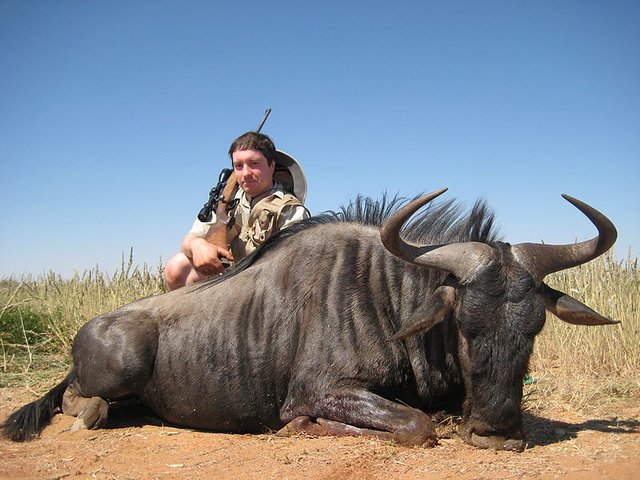
Wiki commons: After a hunt by Lord Mountbatten licensed under CC BY-SA 3.0
The Method Stage
And now the obsession continues which sees the satisfaction moving from the type of game taken to the method of which the kill was made, though the kill of the needed animal is still important, the hunter in this stage tries out different methods which might prove challenging as they try to develop their hunting skill and getting the pride from taking down animals with methods which prove challenging, going as far as tracking the animal than engaging and putting emphasis on his firepower. The satisfaction for the hunt lastly reaches the last stage which is the Sportsman stage of hunting.
The Sportsman Stage
Now the hunting satisfaction does not come from the ability to take down the prey, the type of prey nor the method used but now mainly lies on the need for undergoing the hunting experience, spending time outdoors just for the fun of hunting, being in the woods and feeling nature and this stage was seen for hunters above the age 45.
From these we have seen that the urge behind the need to kill animal is an attribute of the nature of man rather than the importance of the kill, man find satisfaction in the kill and that is the driving force for the hunt, this urge has led to the development of several strategies for hunting and in the next section, we will see some of the hunting strategies used by man which helped overcame his deficiencies.
Strategies To The hunt
Discovered evidence of a wild beast dated about 2.6 million years showed that man had hunted the big animals of the wild in this period with his rudiment tools, he had not developed guns and even the use of spares was seen about 400,000 years ago, how then did he hunt these animals?
With respect to some wild animals of the animal kingdom, he was small, not good at speed and also a weak one, the weight of a big male lion is estimated to exceed 250 kilograms and it's male to weigh about 182 kilograms while the bushman had his weight to be about 50 kilograms a weight which ranges between 3-5 times less than that of a large lion, with respect to speed the average speed of a human during a 100m dash was seen to be about 37.7km/h which can't be compared to that of the animal of speed, the cheetah which recorded a speed about 98km/h.
With regards to strength an elephant can pick about 350kg weight of tree with its trunks which can't see a man doing with his strength, a close range fight with these animals to kill and acquire their meat will be very dangerous to embark on and the question is how Is man superior and what strategies did he employ...
Persistence hunting.. .
Humans are known to have an exceptional endurance while running, a hypothesis brought was that their endurance limit compared to other animals of the wild made hunting them a trait to win at the end of the day, what's persistence hunting all about?.
This sees a group of hunters scaring their prey to running for their lives, these hunters track the animal to its best place to scare them over and over again back into the heat of the sun, running till they become hyperthermic (a high body temperature) which leads to loss of strength allowing the strongest hunter in their midst the ability to kill the animal which is now very weak by means of beating, strangling or killing it with a spare.
Humans are known for some anatomical and physiological features which makes them a higher endurance runner when compared to other animals. For start, humans are not known for one breath per locomotion which is not seen in other mammals allowing them a great amount of oxygen intake when running making them run for a long period, sweat glands which are found in the surface of the human body sees him to exhibit a more cooling ability than other mammals which are seen to have a low sweat gland density and having fur coat over them which prevent cooling bringing a lowered endurance when running.
Some other features which make humans better at this are mouth breathing, shorter feet, broad shoulder and a larger gluteus maximus muscle this hunting technique had seen success and still see success today.
The idea of the Bait brought a success too, baiting involves a situation where a substance is used to attract the animal being hunted, this is mostly used in catching fishes where insects, smaller fishes or other means are used to attract fishes to be caught. The use of bait has also been seen to be used in Leopard hunting where a dead antelope is placed at a distance from the ground high in a tree and watched from a distance, shooting the animal when it comes for it.
The Baiting technique is also used in bear hunting where some sweet substance and aromatic substance which might be a rotten meat is spread and the hunter waits for his prey hiding and kills when his prey is close by.
Then came the idea of traps
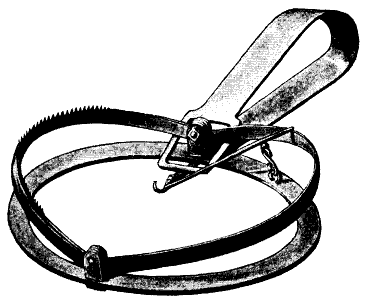
Wiki commons: A jaw trap by Nordisk familjebok, licensed under CC BY-SA 3.0
The hunting man also created some devices to use in catching his prey remotely, these are called traps sometimes built to kill or to keep the prey stuck till the hunter came. Inventions have seen different types of trap using different principles to achieve its aim some are:
A leg-hold trap which is designed to grip the legs of the prey keeping it stuck until his predator comes.
The body grip trap which is a trap designed for the kill, the animal is lured into a suitable position which will trigger this trap for the kill, sometimes they are made to engage the animal as they pass by a path, using triggers of which wires are preferred.
The deadfall trap is one which involves a rock or log set at a height to fall from this height crushing the animal when a trigger is moved, a bait is sometimes used to enable easy activation of the trigger to engage the trap mechanism.
The Trapping Pit is one form of traping used to catch the hunt alive, it's constructed by digging a hole in the ground and sometimes making it unnoticed such that when the animal comes in the area, it falls into the pit and is trapped.
The cage trap is such which is set to lock the animal in a cage alive, most designs sees them with bait engaging the trap when the animal is in the cage by locking it's doors, this system have been most widely used when the animal is not being trapped for the kill but to be transported from one location to another.
The introduction of the weapon increased the kill
As man advanced in inventions, this saw the creation of weapons which facilitated the kill, with weapons, killing an animal at a long range without contact became possible, this saw different weapons created of which the Gun sees wide usage, early usage of weapons dated back to the usage of spare and our world today have seen the production of different types of guns and all these have led to man reducing the animals of the wild by overhunting
And The Super Predator Overhunted His Prey
The hunting man needs the parts of his prey for so many things like food, fur, clothing, as traditional symbols and lots more coupled with the obsession for the hunt, he did the hunt to its core by overhunting his prey. Overhunting simply refer to an extreme activity of hunting which results in a reduction in the population of species
The Effect Of The Hunt
Leading To Extinction Of Species
Many animals have been lost to this cause, According World Wildlife Fund (WWF) about 23% of the total population of animals which went extinct have humans to be blamed for it, killing them and either reducing them to extinct directly or leaving their prey in the wild to lack its hunt and die by starvation.
Some animals killed by this cause are the Elephant birds of Madagascar, the giant lemurs amongst others, apart from the action of extinction many animals of the wild reduced in population due to the hunt.
It affects the interconnectedness of the ecosystem
The effect of overhunting do not only have effect on the over hunted animal but also go further to affect the biosphere In general, the wildlife is made of so many animals and they all need each other to survive to bring an interconnection of the ecosystem and when a particular species is hunted reducing its number it affect the order, when an animal Is hunted to extinction a hole is left in its role in the balance.
Take for example an animal with the role of regulating the population of another species in the wild, when that role is left a void, it will result in an overpopulation of the species.
Disrupts migration and hibernation
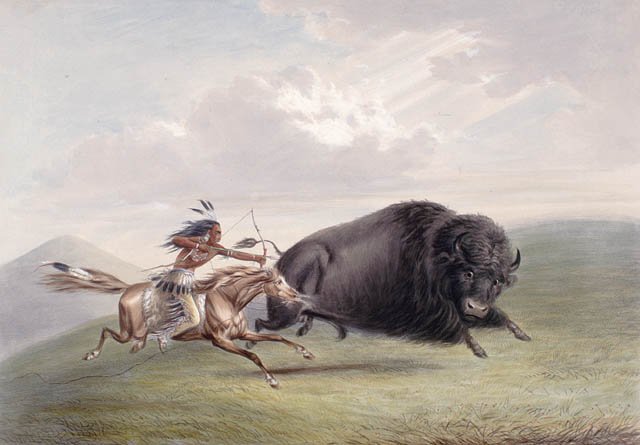 Wiki commons: Buffalo hunting by George Catlin licensed under CC BY-SA 3.0
Wiki commons: Buffalo hunting by George Catlin licensed under CC BY-SA 3.0
According to studies, hunting an animal can put fear in other living species and doing so affect their natural way of living, an example is the hibernation and migration activities of some animals, hunting can impose the fear of being killed and thus may stop them from hibernation or migrating to other another habitat.
Overhunting, in general, have done great harm to the ecosystem affecting both the hunted animal and those connected to it in one way or another and with the connection of the ecosystem, it also goes further to affect plants and trees causing harm to the food chain.
Solution And Conclusion
It's in the predators nature to want to hunt a prey and man is no difference, Hunting though needed by man to fend for some of his needs such as food, fur, cultural purposes and lots more needs to be controlled so as to reduce its impact on the animals of the wild and the ecosystem at large, we have seen the effect of this hunt even to the point of causing the extinction of some animals, therefore strategies should be implemented to reduce this, the need for this has led to laws being enacted by various countries to combat the effect of overhunting and illegal trade of animals but though the laws have been enacted, they need enforcement most especially for those animals which this hunting have left vulnerable to extinction
To also combact this effect of hunting by man there should also be regulation of the arms used to hunt these animals so as to limit the kill, awareness on the effect of overhunting should be created around the world to discourage this practice, stating the problems this have caused so as to engage the community in this fight as only then will success be achieved with regards to stopping the Overhunting giving emphasis to specie endangered Support should also be given to organizations which are working tirelessly to reduce the outcome of the activities of man as a hunter
Thanks for your time, Have a lovely weekend.
References And Further Readings

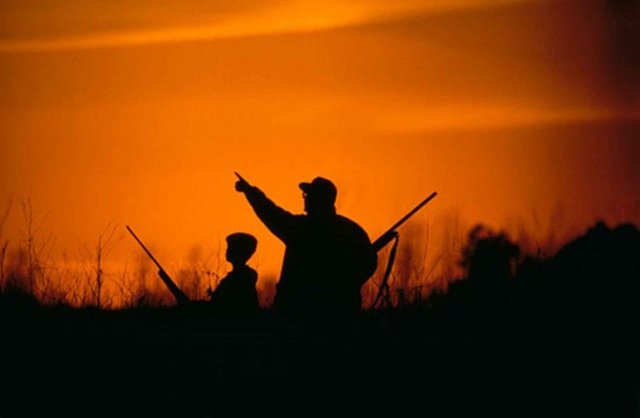

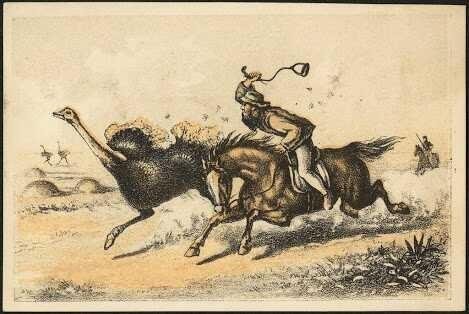
Congratulations @wisdomdavid! You have completed some achievement on Steemit and have been rewarded with new badge(s) :
Click on the badge to view your Board of Honor.
If you no longer want to receive notifications, reply to this comment with the word
STOPDownvoting a post can decrease pending rewards and make it less visible. Common reasons:
Submit